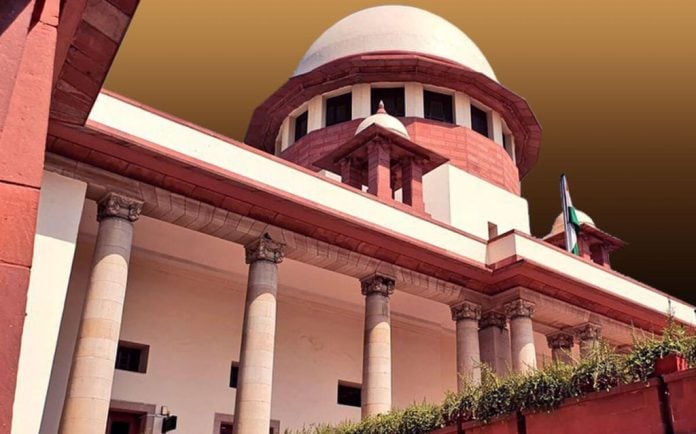The Supreme Court will hear a batch of petitions which challenge the laws enabling the issuance of electoral bonds that allows for anonymous funding of political parties on October 14.
The bench of Justice BR Gavai and Justice BV Nagarathna shall be hearing the petitions.
An electoral bond is an instrument in a form of promissory note or bearer bond which can be purchased by any individual, company or association of persons having the citizenship of India.
The bonds, which come in different denominations, are issued for the purpose of contribution funds to political parties in its existing scheme in the country.
The pleas challenging the scheme were mentioned in April this year by advocate Prashant Bhushan before then Chief Justice of India (CJI) NV Ramana who promised to list the matter, however this could not be possible.
Electoral bonds were introduced through Finance Act 2017, which in turn amended three other statutes – the RBI Act, the Income Tax Act and the Representation of People Act – for enabling introduction of such bonds.
The Finance Act, 2017 brought a new system of electoral bonds to be issued by any scheduled bank for electoral funding.
The Finance Act was passed as a money bill, which meant that it did not require the assent of Rajya Sabha.
Various petitions are pending before the top court which challenge at least five amendments made to different statutes through Finance Act 2017 and Finance Act 2016 on the ground that they have opened doors to unlimited, unchecked funding of political parties.
Petition has been filed in the same regards by Association for Democratic Reforms and Common Cause which alleged that the money bill route was adopted in order to bypass the Rajya Sabha, as the ruling BJP government does not have a majority.
The petitioners have also submitted that the consequence of the amendments was that annual contribution reports of political parties to be furnished to the Election Commission of India need not mention names and addresses of those contributing by way of electoral bonds, thereby killing transparency in political funding.
Another challenge that has been posed is the removal of the cap on donations by the amendment to the Companies Act, 2013 and the amendments made to Section 236 of the Foreign Contribution (Regulation) Act, 2010.


